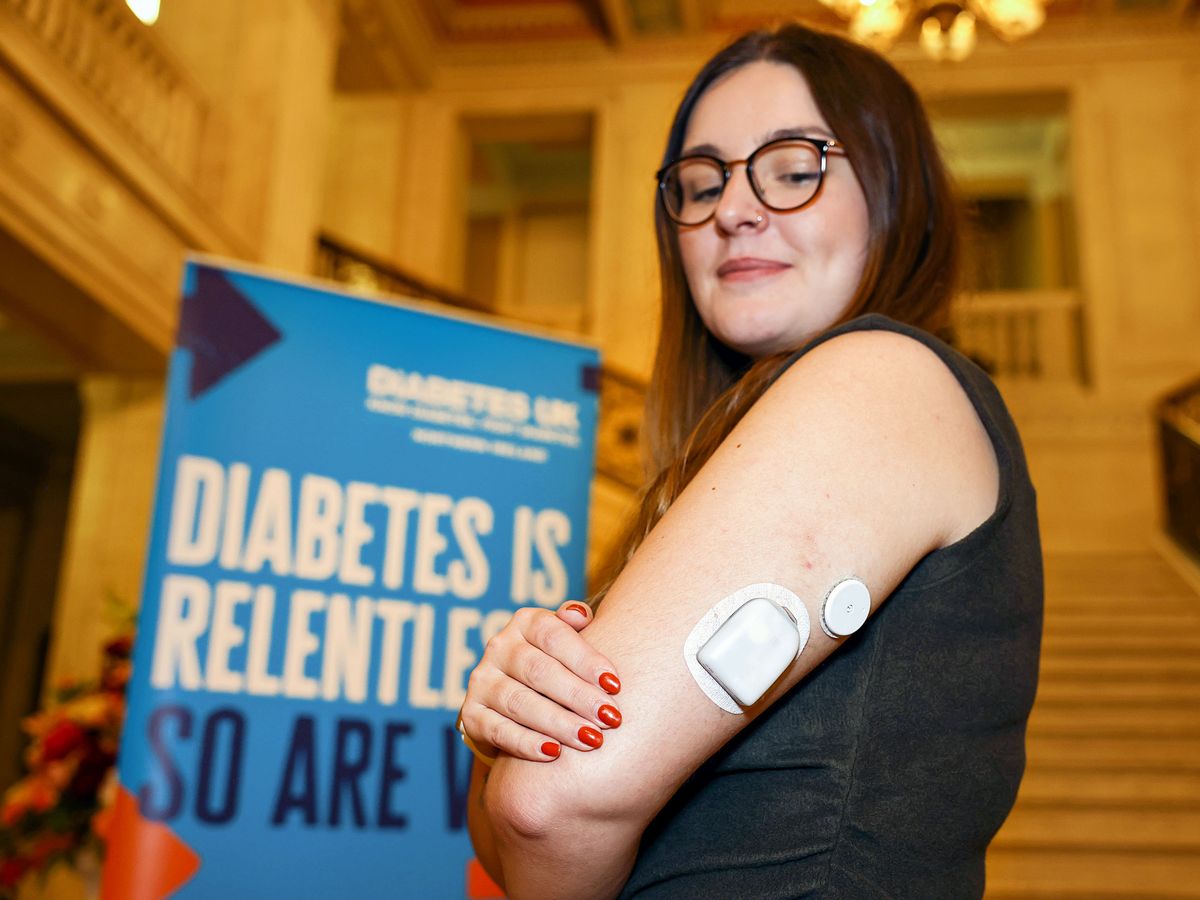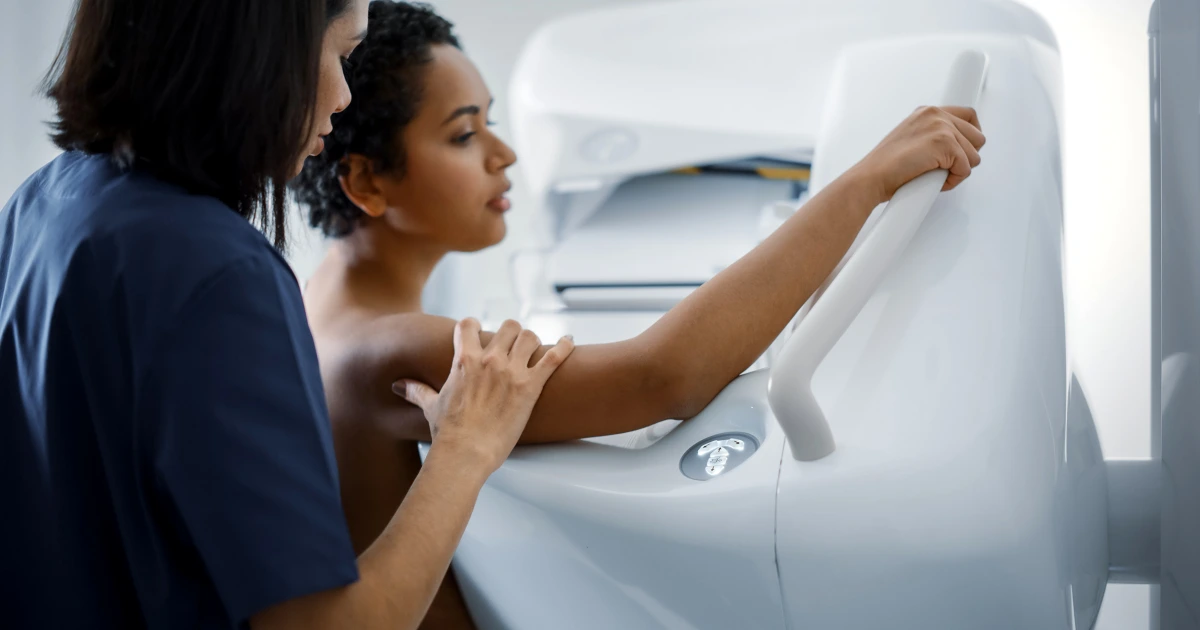Copyright belfastlive

Sian McAdams has lived with Type 1 diabetes for most of her life. Since being diagnosed with this dangerous and life-threatening condition at the age of 4, she has endured 25 years of finger-prick testing, multiple injections and anxiety over her blood sugars and insulin levels. That was until earlier this year when Sian, now aged 30 and from Moneyreagh , finally gained access to brilliant new insulin technology, known as hybrid closed loop. It uses digital tech to monitor her blood sugars via a sensor on her arm and automatically doses insulin into her body, something that she says has dramatically changed her life . Sian is one of a small number of people in Northern Ireland who have accessed the innovative treatment, which continuously monitors blood sugars with a device on her arm, and through this, it automatically doses the required amount of insulin into her body around the clock. Sian had no history of diabetes in her family , so it came as a shock to them and it was hard for the then four-year-old to understand why she needed regular injections. She explained what life was like growing up with diabetes : “I was good at getting my blood glucose done with the finger pricks, but the insulin was really scary with the syringe, it was a big needle and the sides of my legs were really sore. “I was comfortable to share with schoolfriends about my diabetes. When I was younger, I remember parents at birthday parties were afraid to give me a slice of birthday cake. I was also very nervous to play sports as I was worried about having a hypo (when my blood sugar would drop suddenly). “I didn’t really know anyone who lived with diabetes until I went to uni, which was challenging. It would have been nice to speak to someone going through the same thing as me." Sian says managing diabetes consumes your day: “It is the first thing you think of in the morning and the last thing at night. From checking blood sugars constantly, to weighing and carb-counting everything I eat, to planning ahead for driving or activities, to the admin of ensuring I have all my supplies. “I need to make sure I have everything I need with me at all times. It’s carrying my insulin, checking my blood glucose, carrying hypo supplies, scales, extras in case something doesn’t work. I need this to keep me alive, so ensuring I have this with me all the time is so important. “Diabetes is 24/7 and there are no days off. I worry about the impact it has on my family, as it’s also 24/7 for them. They worry about me and support me constantly, but I can feel like a burden at times. “I have had some complications with my eyes and it has been really scary. I’ve had laser treatment and injections. I worry about starting a family of my own and all the extra planning and precise management that comes with that to ensure that I’m healthy and that my baby will be too.” Sian started on hybrid closed loop (HCL) in March this year and says the adjustment took some getting used to, but the benefits are worth it: “HCL has made a huge difference to my life. There are so many things you have to think about when you live with diabetes, your brain is constantly having to make decisions. Since starting HCL, this has taken the burden of making some of those decisions away. “It was a strange adjustment from injecting for 25 years to then trusting this technology, but it was very easy to follow and it didn’t take me long to get used to it. Lifestyle-wise, I am more confident with managing my diabetes while exercising and I love exercising. “I used to think diabetes would mean I couldn’t do certain activities or achieve certain milestones in exercise, but I can! My hBa1c – the average blood glucose number we watch carefully - has reduced dramatically since starting HCL. “With the support of ophthalmology, the issues with my eyes have also settled, by keeping my blood sugar levels steadier. This just goes to show that HCL can reduce those complications that come with living with diabetes. “I’m really proud of how far I have come along. It’s a big change and it does still have challenges, but I am in a far better position now, thanks to all the research and support that has gone in to diabetes care.” Sian says the technology is not only good for the individual, it’s good for the health service and she’s hopeful more people will soon be able to access it in Northern Ireland. “Diabetes is a life-long condition. There needs to be funding made available to ensure those who should access the technology can. Since starting to use hybrid closed loop it has really supported me to carry on the activities I love. I believe everyone should have fair access to technology. “I know there is a cost to funding it, but to me this can be supported in how it can reduce the complications that come with living with diabetes, and the cost of treating them. The technology has been good for me as a person living with diabetes and it must be good for the health service too.” Diabetes affects around 118,000 people in Northern Ireland - more than cancer and dementia combined. Ahead of World Diabetes Day this Friday, November 14, Diabetes UK Northern Ireland has hailed it as the region’s “most preventable health crisis”. Type 1 diabetes affects around 10,000 people in Northern Ireland. It starts suddenly and if left undiagnosed, it can worsen quickly and can be life-threatening. Type 1 diabetes requires constant monitoring and insulin management and there is currently no cure. New digital technology can automate blood sugar monitoring and insulin delivery, and it is transforming life for people like Sian living with type 1 diabetes, removing the burden of 24/7 insulin management. Although it is approved for use in Northern Ireland, the rollout of this “hybrid closed loop” technology has been minimal. The estimated cost of treating diabetes and its complications to Northern Ireland health services is £1 million every day. These devastating complications can include sight loss, kidney failure and amputations, along with heart attacks and strokes. Diabetes UK (NI) say investment in prevention and timely treatment and care would offer a cost-effective path forward. Tina McCrossan, National Director of Diabetes UK Northern Ireland, said: “At a time of tight health budgets, when the daily cost of diabetes complications exceeds a million pounds, prevention and early detection must be prioritised for investment now, in order to deliver significant savings down the line.” She added: “People who use hybrid closed loop technology say it dramatically improves quality of life, calling it “transformational”. Many individuals are frustrated that they are being denied access to this life-changing treatment. We are urging the Health Minister to prioritise widespread availability of this technology without delay.” Diabetes UK (NI) is asking the Minister to push ahead the joined up use of new IT systems for GPs and Hospitals (Encompass) in order to provide the data needed to monitor diabetes in Northern Ireland. Ms McCrossan concluded: “Without robust data, we can’t track outcomes or identify inequalities and we can’t plan, deliver or resource diabetes care effectively. As one of the three most prevalent long term health conditions in Northern Ireland, joined-up data monitoring is an essential step toward taking diabetes seriously. It is vital that this is implemented within the next year – other UK regions have benefitted from robust audit processes for years. “With targeted investment in prevention and early intervention, and improved access to digital technology, we can reduce the impact on our health service and improve lives. We urge the Minister to make diabetes a priority for 2026 and beyond.” In response, a Department of Health spokesperson said: "Following the National Institute for Health and Care Excellence (NICE) final guidance on Hybrid closed loop systems for managing blood glucose levels in type 1 diabetes, the Minister established a clinical working group to work with relevant stakeholders across Health and Social Care (HSC) to develop an implementation plan, outlining timescales for roll out. "The plan will provide equitable, sustainable and affordable access to the technology, for those groups most likely to benefit. Funding is required for upskilling the current workforce and recruiting new staff to offer the Hybrid Closed Loop safely, effectively and equitably across the region." They added: "Rates of diabetes, both Type 1 and 2, are growing in Northern Ireland, with Type 2 being the biggest preventable illness. Since 2016, when the Department of Health launched the Diabetes Strategic Framework, work has been going to transform diabetes treatment and care, through the NI Diabetes Network. "The Network works alongside partners both locally and nationally, including Diabetes UK and people living with diabetes. The Network is continuing to work with partners to standardise access to services for those who need it. "The Network commissions services to support the treatment and care of those living with diabetes. For example, a Structured Diabetes Education programme has been commissioned and is currently delivered by Health and Social Care (HSC) Trusts, and a regional young adults transition pathway has been established to support young people living with Type 1 diabetes transition into adult services." For all the latest news, visit the Belfast Live homepage here and sign up to our Be lifestyle newsletter for all the latest showbiz, fashion, beauty, family features and more.



